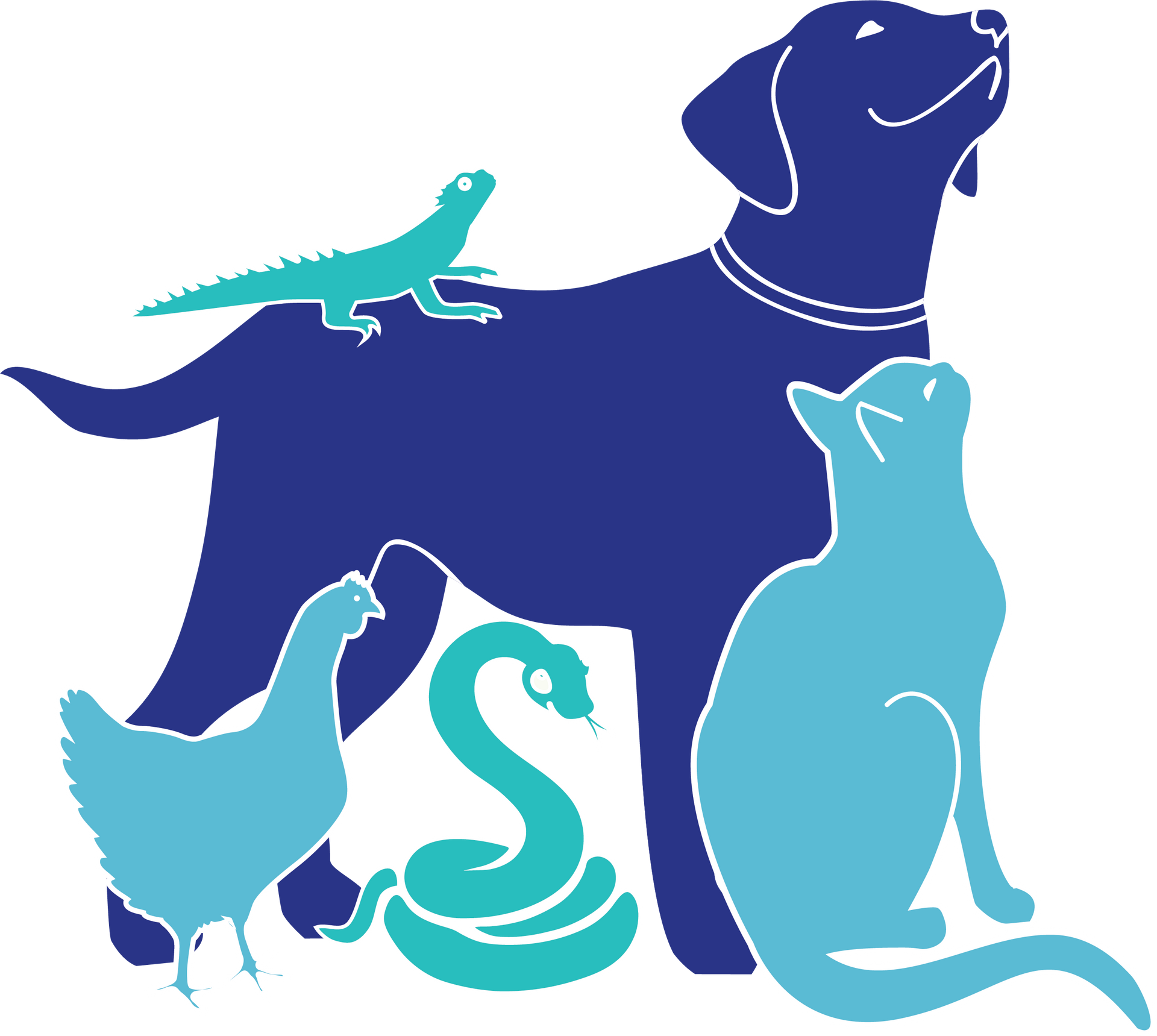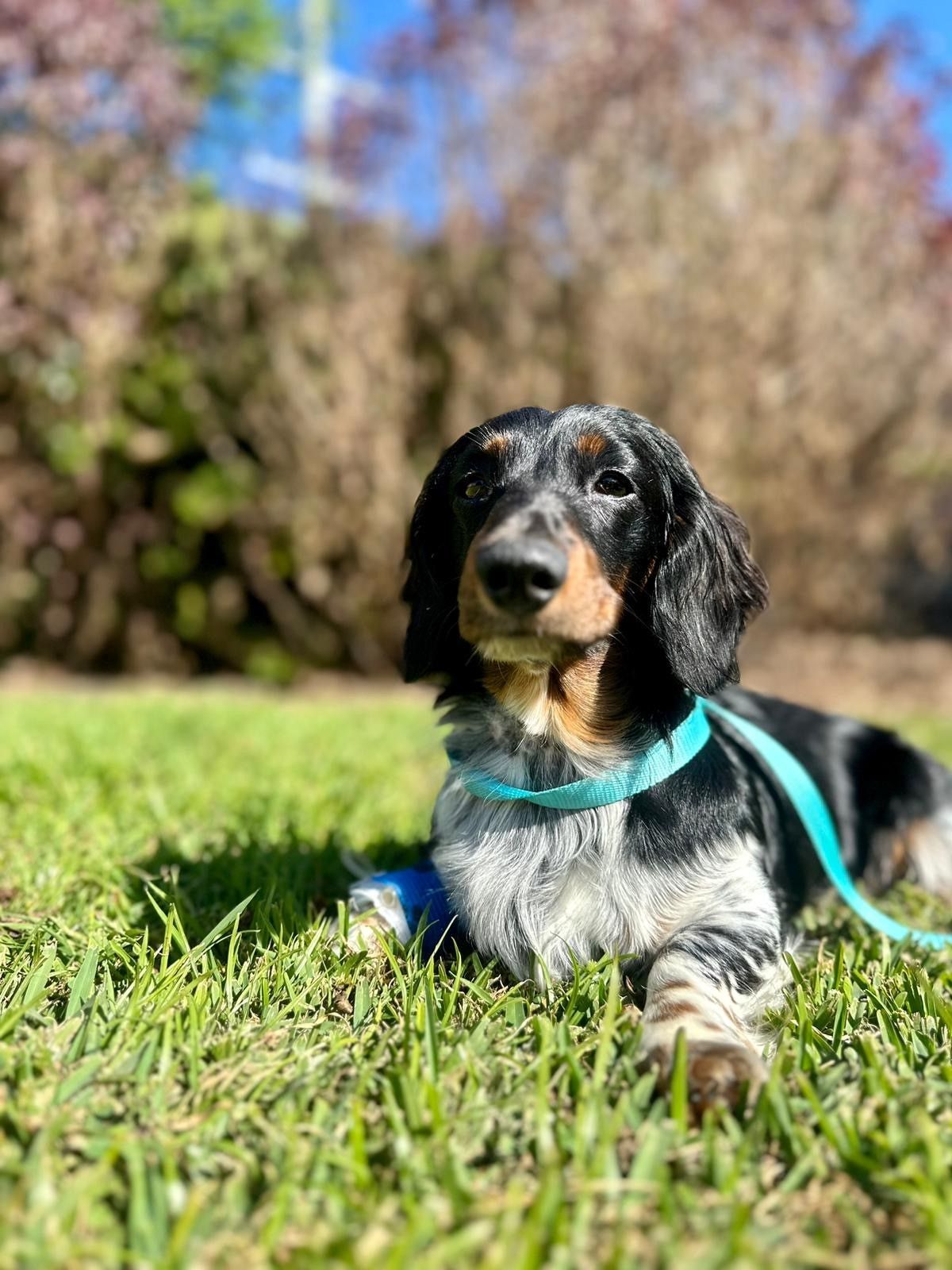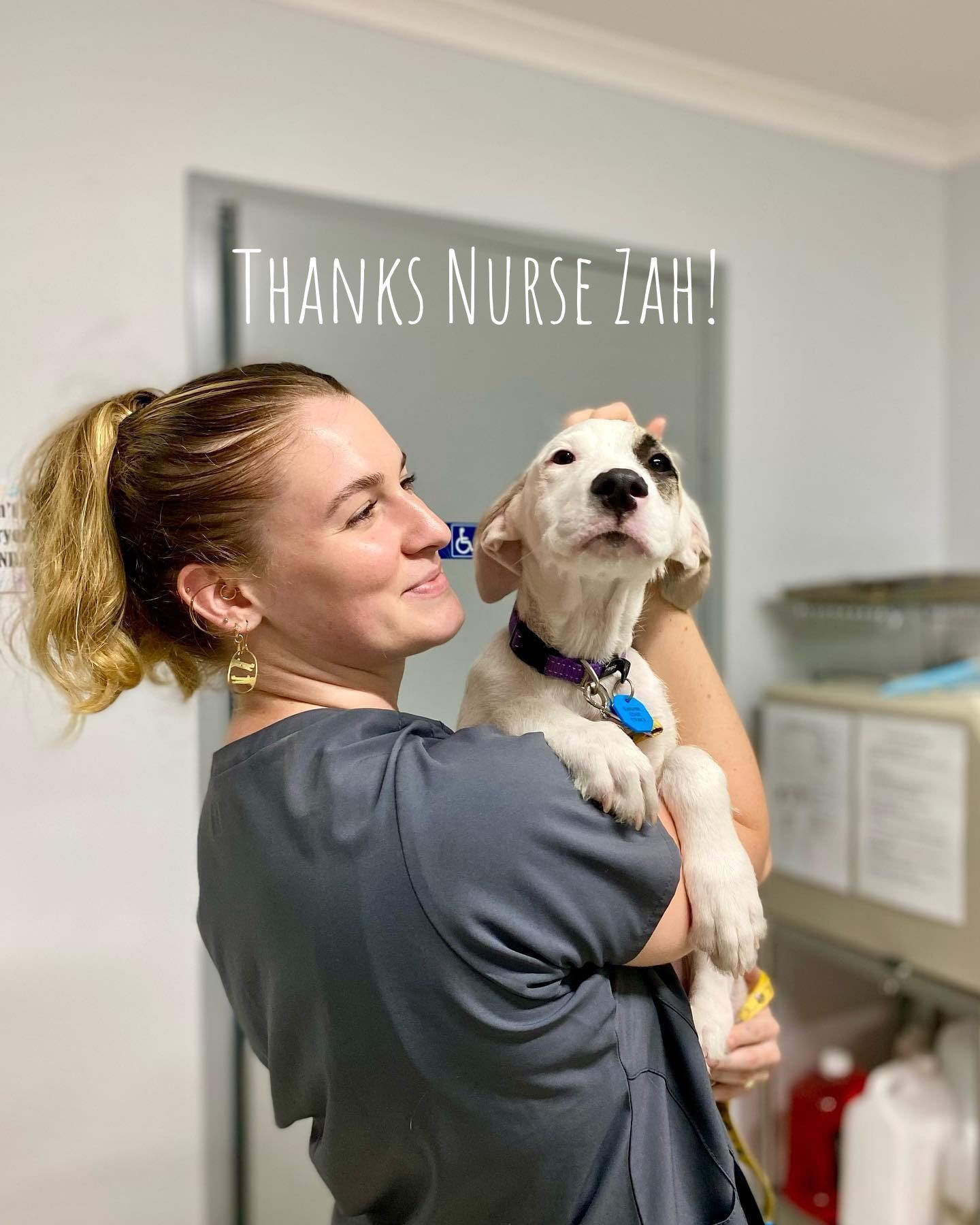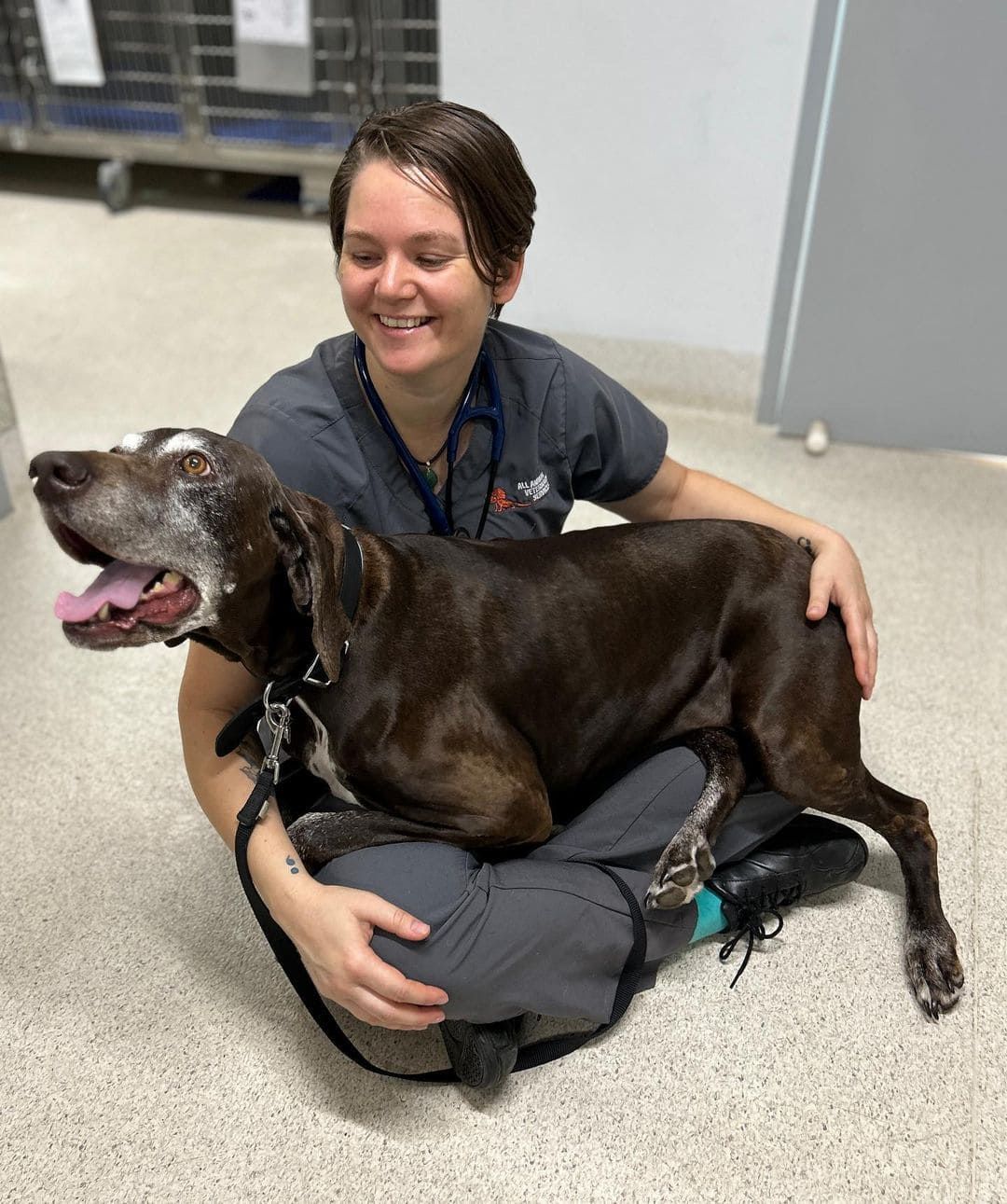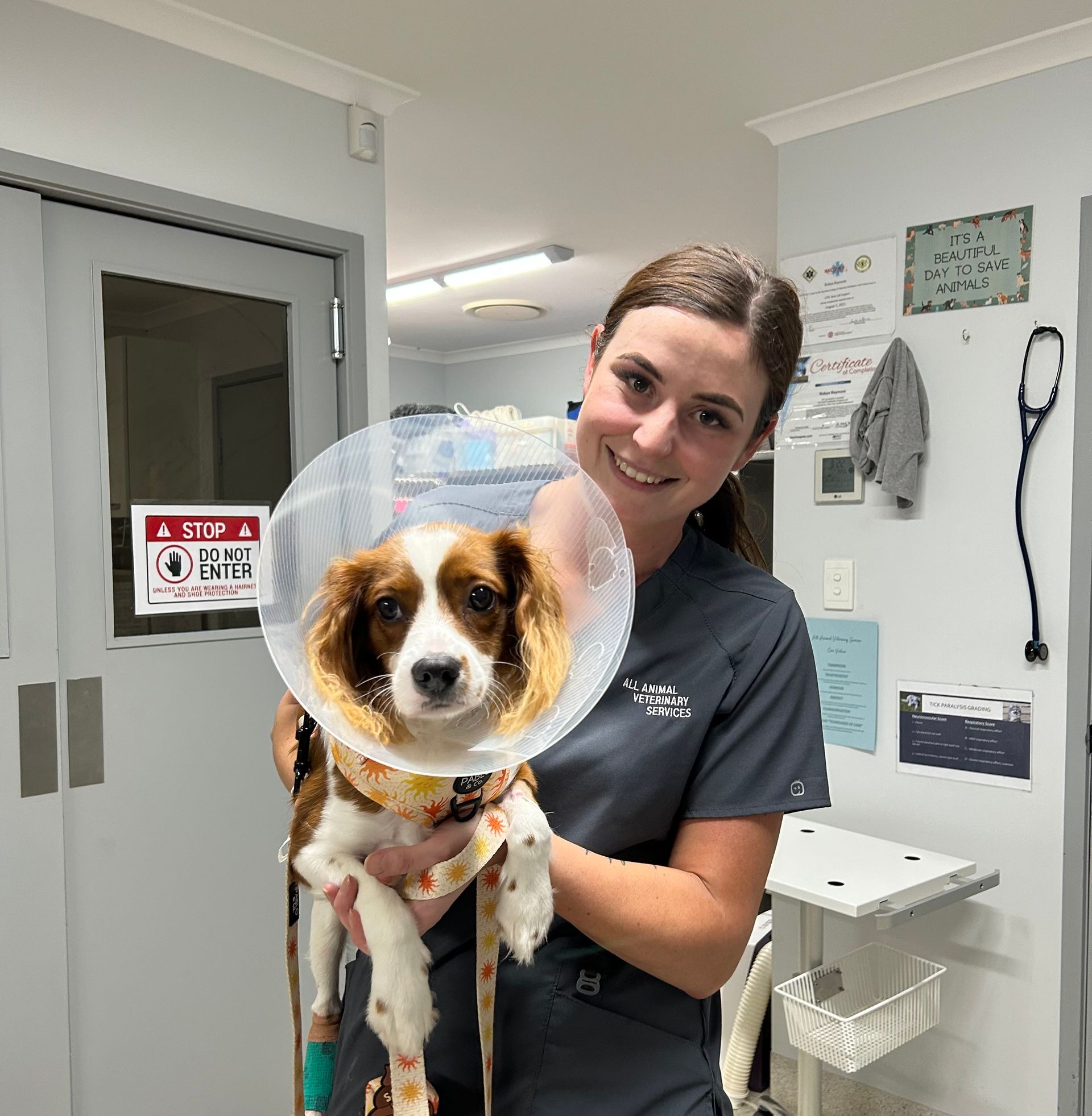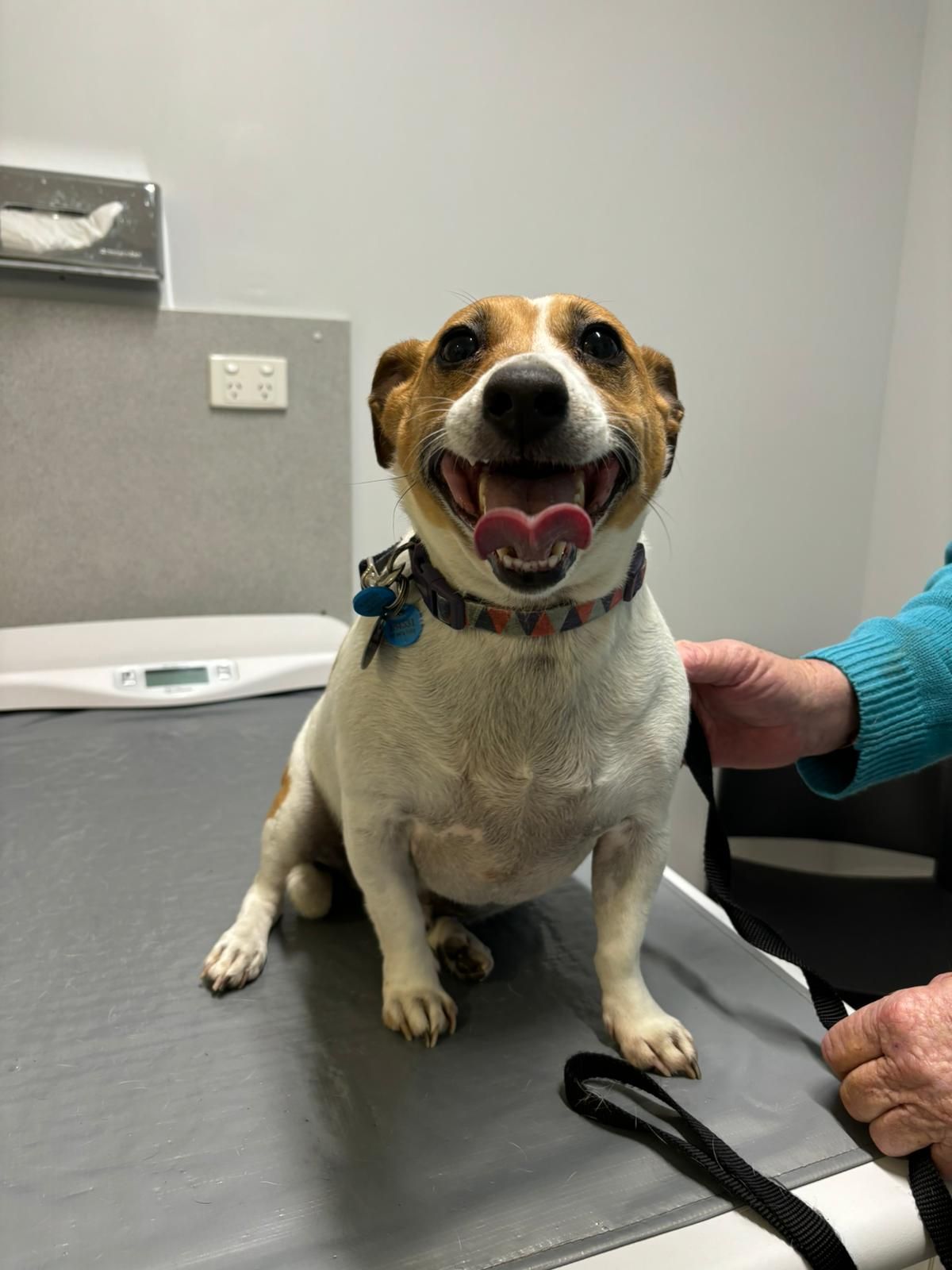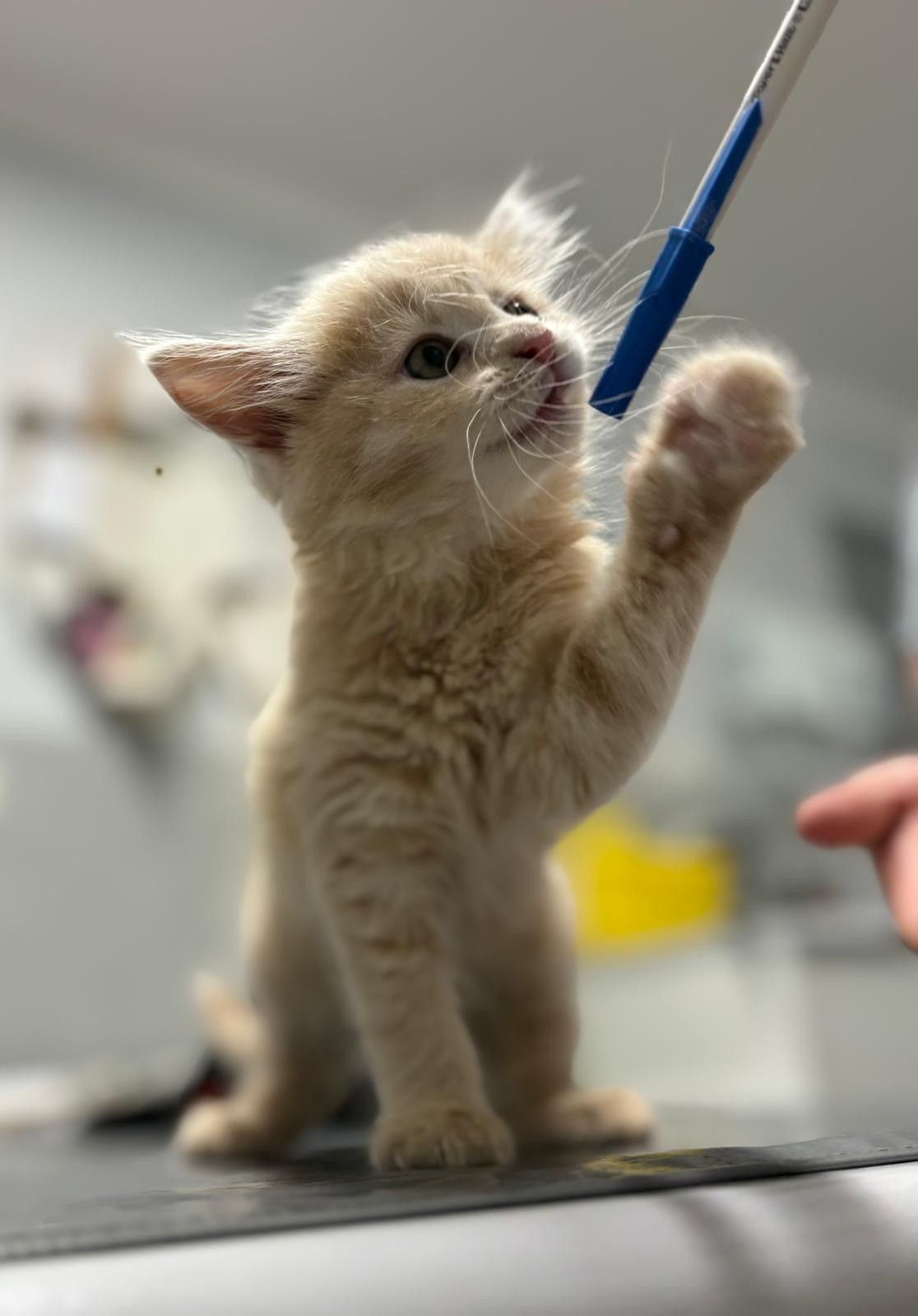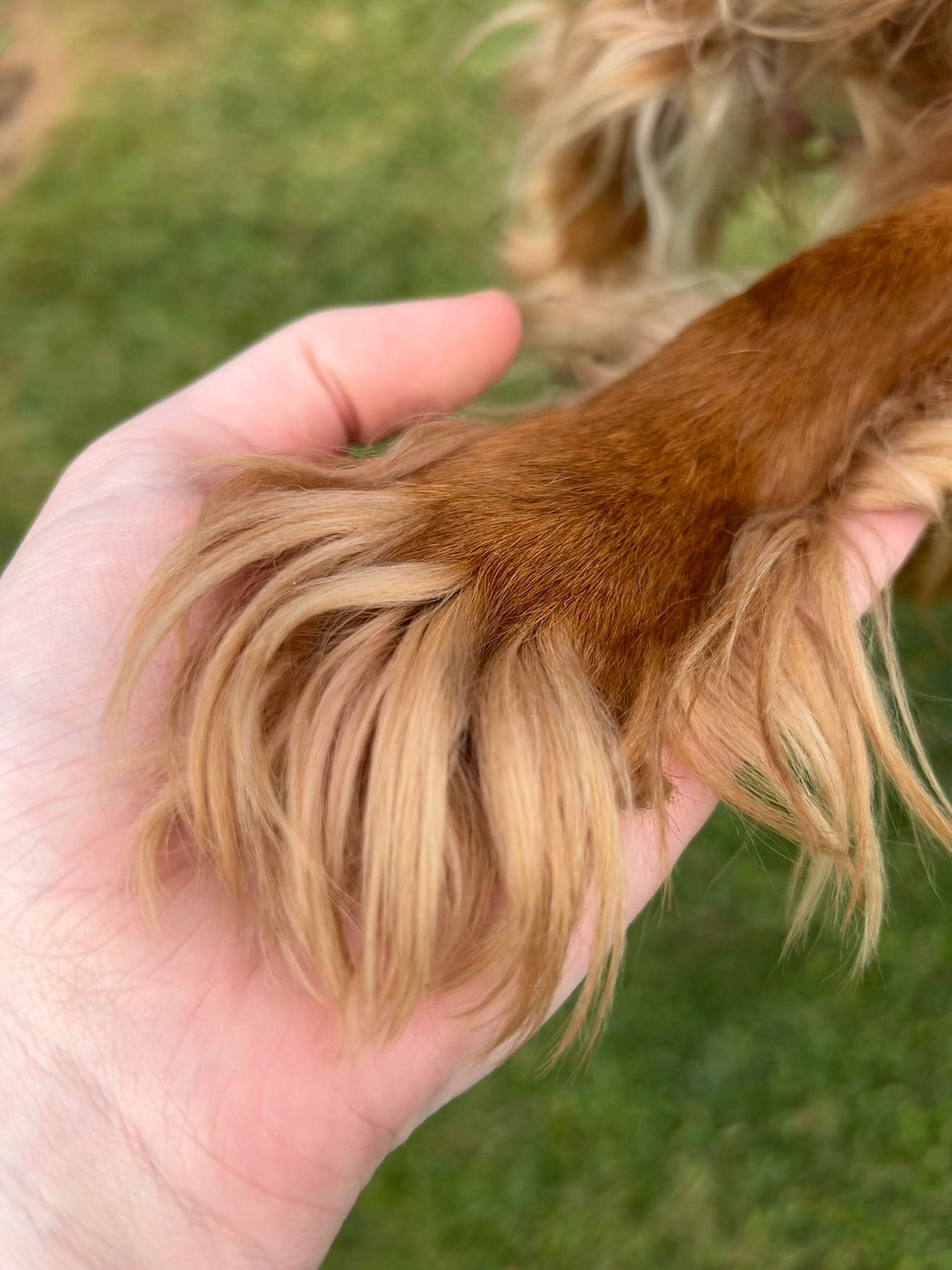Monthly Educational Topic
Why Vaccinate Your Pet?
Vaccinating your pet is one of the most effective ways to ensure their health, well-being, and longevity. Just as vaccines have played a crucial role in human health, they also provide essential protection for our beloved animals. Here’s why vaccinating your pet should be a priority for every pet owner.
1. Protection Against Deadly Diseases
Pets are vulnerable to a variety of serious, contagious diseases that can be life-threatening without proper vaccination. For example, distemper, parvovirus, rabies, and feline leukemia are diseases that can severely affect pets, especially those who have not been vaccinated. Vaccines provide a safeguard, preventing pets from contracting these potentially fatal conditions.
2. Preventing the Spread of Disease
Just as some human diseases can spread to others, certain pet diseases can spread quickly among animals, especially in communal environments like shelters, parks, and boarding facilities. By vaccinating your pet, you help protect not only your own pet but also those they may come into contact with, ensuring that diseases are less likely to spread.
4. Prevention is Cost-Effective
Treating serious illnesses is often expensive, and in many cases, the costs of veterinary care for a disease that could have been prevented by vaccination are far higher than the cost of the vaccine itself. Vaccinating your pet is a proactive and cost-effective way to avoid expensive treatments, hospitalisations, and long-term care for preventable diseases.
5. Long-Term Health Benefits
Vaccines don’t just prevent immediate illness; they also protect your pet's long-term health. Some diseases, if contracted, can lead to chronic conditions, organ failure, or complications that may shorten your pet’s life. Regular vaccinations contribute to a healthier, longer life for your pet by reducing the risk of these debilitating diseases.
6. Peace of Mind
Pet owners want the best for their furry companions, and vaccinating your pet provides peace of mind knowing you’ve taken the necessary steps to protect them. Whether your pet is indoors, outdoors, or socializes with other animals, knowing that they’re vaccinated reduces the stress of worrying about their health.
7. Vaccination Schedules Are Tailored to Your Pet
Veterinarians provide personalised vaccination schedules based on your pet's age, lifestyle, and health status. Puppies and kittens typically start their vaccinations early in life, followed by booster shots to ensure ongoing immunity. Adult pets may require booster shots periodically. Your vet will help you establish a vaccination plan that fits your pet’s specific needs.
8. Better Socialisation and Travel Opportunities
Vaccinated pets are more likely to be welcome in social settings such as dog parks, boarding kennels, or pet daycare facilities. If you plan to travel with your pet, many places require proof of vaccination before allowing entry. Keeping up with vaccinations ensures that your pet can enjoy a variety of experiences while staying protected from harmful diseases.
Conclusion: Vaccination is an Act of Love
Vaccinating your pet is an essential part of responsible pet ownership. It protects your pet from dangerous diseases, prevents the spread of illness, and contributes to their overall well-being. It’s a simple yet vital step that ensures a healthier, longer life for your pet and peace of mind for you as an owner. Always consult with your veterinarian to determine the best vaccination schedule for your pet, and give your furry companion the gift of protection.
Caring for your geriatric pet
Life with pets can bring us so much joy, but it can be hard to watch as old age sets in. At All Animal Veterinary Services, we want to do everything we can to ensure your furry friends stay happy, healthy and as comfortable as possible for as long as possible!
Signs of ageing in dogs and cats can differ between breeds. As they age, our pets physical and mental stamina changes, often bringing about other changes in their bodies too. Below are some changes to look out for-
Dogs-
· Hearing loss
· Vision loss
· Joint pain
· Cognitive impairment
· Heart problems
· Cancer
· Weight fluctuations
· Incontinence
· Poor kidney function
· Decreased digestion and ability to absorb nutrients
Cats-
· Altered sleep-wake cycle
· Changes in thyroid function
· A decrease in kidney function
· Changes in vision
· Decreased sense of smell
· Brittle or ingrown nails
· Heart or circulatory problems
· Decreased digestion and ability to absorb nutrients
· Reduced ability to handle stress
· Changes in mobility/arthritis (Degenerative Joint Disease)
As much as we, as pet owns, cannot stop old age. There are some things we can do at home to help them.
1. Following their lead- It’s important not to push older pets past their limits as they may become sore or exacerbate symptoms. If they want to have a day in, let them, but don’t be afraid to gently encourage them to stay active. For dogs, keep up your usual walking routine as much as possible, as a reassuring daily routine will keep your dog comfortable and happy. You may have to change the length of your usual walk or choose less challenging terrain.
2. Bathing/ Grooming more often- As our pets age, you may find they struggle to look after themselves. They may not be able to reach the places they used to be able to reach or they just forget. You can help by increasing how often you wash you dogs and giving your cats daily brushes or places they can roll/rub on. As you are doing so, keeping an eye out for any strange lumps, bumps, or rashes is a good idea too!
3. Introduce new brain exercises- Mental exercise is just as important when they begin to age. Keeping your senior pet active and entertained can help keep their mind sharp and ensure their days are fun. Stimulating activities you could provide include puzzle toys, treat scavenger hunts and social interaction.
4. Feed a high-quality diet- As mentioned above, as our pets age, their gut’s ability to absorb nutrients from their food decreases. Although you may be tempted to start letting your pets indulge, it becomes more important than ever to feed them a good quality food with lot of readily available nutrients. Introducing supplements such as probiotics and fish oil tablets can help but it is always best to discuss this with your vet beforehand.
It is also important to maintain a healthy weight in older pets as well. Senior pets can already have inflammation around their joints from arthritis. With excessive weight on their already sore joints, this can increase inflammation causing more pain and less movement.
5. More vigilant of behaviours/cues- It is important to know your pets inside and out so that when their behaviours start to change, you can notice them straight away. Senior pets can find everyday things such as temperature regulation and mobility difficult, so it’s up to their pet parent to notice subtle signs of discomfort or pain. Behaviours that could indicate pain include eating differently, avoiding stairs, not jumping when they usually would, limping or lying down much more than usual, they may need vet attention.
6. Dental care- As our pets age, like us, they are at a higher risk of issues such as gum disease and cracked teeth, which can be incredibly painful and uncomfortable. Make sure your vet is checking your pets’ teeth regularly so any problems/changes can be picked up on before they get worse. Cleaning your pets’ teeth with a finger brush/toothbrush and dog-friendly toothpaste or offering dental treats/dental specific foods can help keep your pets teeth cleaner for longer.
7. Create an accessible home environment- Take some time to optimise your home for your aging pet, swapping out their beds for an orthopaedic or heated option, installing some pet stairs or ramps, and using rugs in the slippery areas of your home. Make sure their beds are accessible and don’t need to jump up anywhere to get comfortable. The goal is to allow for their independence while keeping them safe and preventing frustration.
8. Regular vet visits- During their senior years, your best friend will need more regular check-ups with the vet. A check-up will enable your vet to monitor your dog’s baseline, keep an eye on their muscle mass, tartar build-up and weight gain, and allow for early detection of issues such as heart disease, hearing loss, irritated skin, kidney, or liver disease.
So your pet needs a dental? - FAQ’s
What is Dental Grading ?
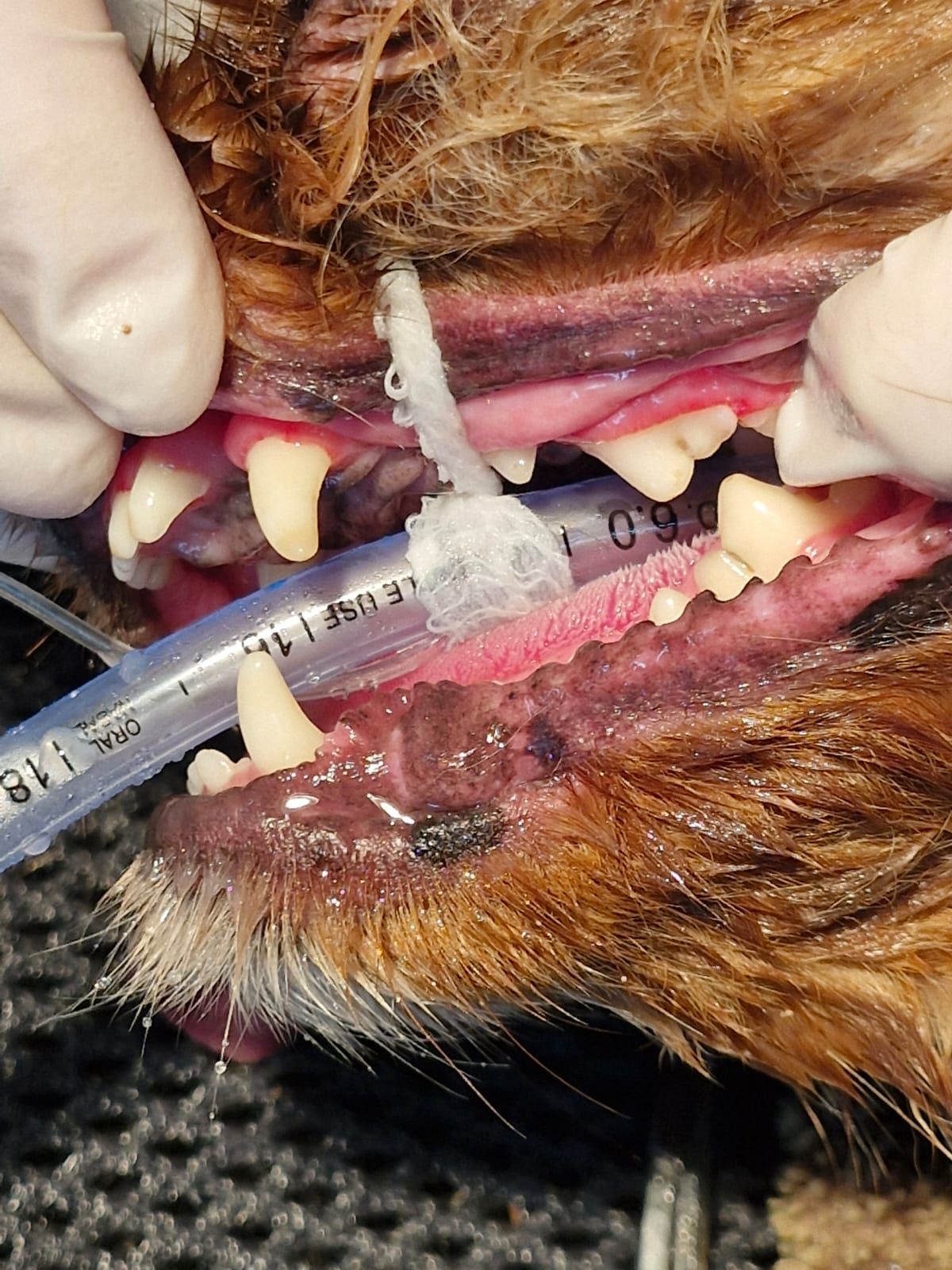
Before we decide on a dental procedure, we assess your pet’s oral health using a dental grading system. This helps us determine the severity of dental disease:
• Grade 1 (Mild): Mild tartar buildup with no significant damage. Routine cleaning is usually sufficient.
• Grade 2 (Moderate): Visible tartar and mild gum inflammation. We recommend a thorough cleaning and possibly some minor dental work.
• Grade 3 (Severe): Heavy tartar buildup, inflamed gums, and possible tooth damage. This requires cleaning, extractions, or other treatments.
• Grade 4 (Advanced): Severe dental disease with significant damage to teeth and gums. This often involves extensive dental work, including extractions and deep cleaning.
What does the Procedure Entail?
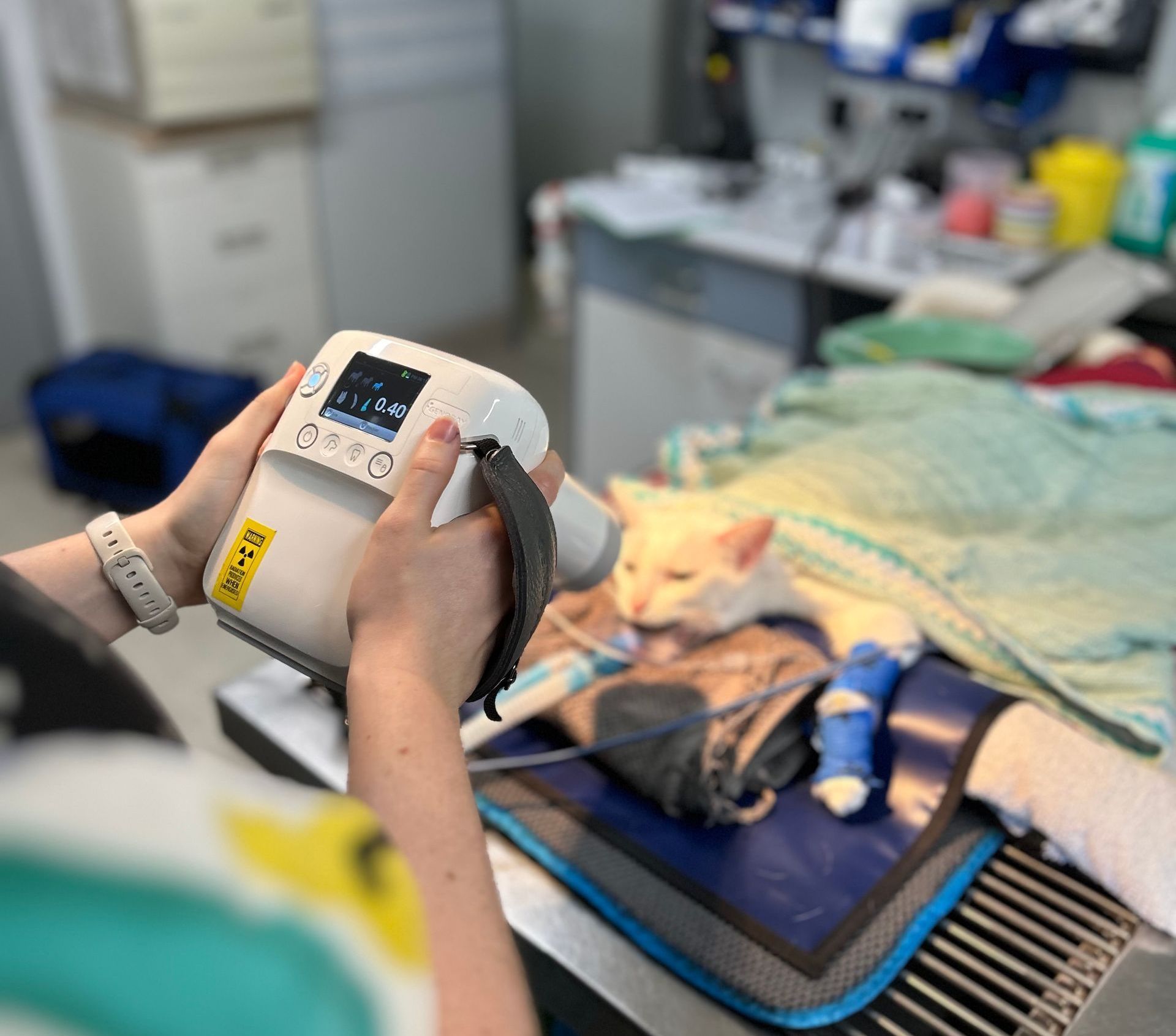 Button
ButtonOnce we’ve assessed your pet’s dental health, we’ll schedule the procedure. Here’s what happens on the day:
1. Pre-Anaesthetic Assessment: We perform a thorough physical exam and may run blood tests to ensure your pet is healthy enough for anaesthesia.
2. Anaesthesia: For the comfort and safety of your pet, dental procedures are performed under anaesthesia. This allows us to clean below the gum line, take x-rays, and perform any necessary treatments without causing stress or pain.
3. Comprehensive Cleaning: We start by removing tartar and plaque from the teeth. This includes scaling above and below the gum line and polishing the teeth to help prevent future buildup.
4. X-Rays: We may take dental x-rays to evaluate the health of the tooth roots and surrounding bone. This helps us identify any hidden issues.
5. Extractions and Treatments: If any teeth are severely damaged or infected, we may need to extract them. We’ll also treat any other oral issues, such as abscesses or gum disease.
6. Recovery and Monitoring: After the procedure, your pet will be monitored closely as they wake up from anaesthesia. Most pets recover quickly and are ready to go home the same day.
What is the Aftercare for Your Pet ?
 Button
ButtonAfter the procedure, it’s important to follow our aftercare instructions to ensure a smooth recovery:
• Pain Management: We’ll provide pain relief medication if needed. Be sure to give it as directed.
• Diet: Your pet may need soft food for a few days, especially if they’ve had extractions.
• Monitoring: Keep an eye on your pet for any signs of discomfort, excessive drooling, or changes in eating habits, and contact us if you notice anything concerning.
• Follow-Up Visit: We’ll schedule a follow-up visit to check on your pet’s recovery and discuss any further care that might be needed.
How do you preventing Future Dental Disease?
 Button
ButtonThe best way to keep your pet’s mouth healthy is through regular dental care:
• Regular Check-Ups: Schedule bi-annual dental exams to catch any issues early.
• At-Home Care: Brush your pet’s teeth regularly with pet-safe toothpaste. Dental chews and toys can also help reduce plaque and tartar buildup.
• Diet: A healthy diet supports overall dental health. Ask us about the best food options for your pet.
How much does it cost to have a dental check on my pet?
 Button
ButtonIT IS FREE!! with one of our nursing team Why wait?
During the consult your pet can expect:
· An oral exam
· Dental grade of 0-4
· A treatment estimate if treatment is needed
· And/or a plan for ongoing dental care.
This is performed by one of our experienced nursing staff. If treatment has been suggested, they can go through the process from start to finish as well as cover any questions you may have.
What to expect when its time to desex your pet
Patient preparation:
- BATHING: It is advisable to give them a bath 24 hours prior to the day before surgery. This is because further bathing cannot be done until after the sutures are removed (at least 10 days). Please do not bring your pet in wet on the day of their procedure.
- FASTING: Feed a light meal, then no more food after 10.00pm the night before. Water is ok to leave out overnight and, in the morning, ensure no food given on the morning of surgery/procedure.
- MEDICATION: If your pet is on medication, please check with us whether to give your pet that medication on the morning of surgery.
- TRANSPORT: Please ensure that your pets arrive at the surgery secured. That is ALL dogs on leads and Cats must be in carriers.
When you arrive the morning of your pet’s procedure:
- You will have an admission consult time booked for you the morning of your pets’ procedure. You will need to allow time for the following. (20 minutes roughly)
- There will be an admission form to fill out upon arrival. This form needs to be filled out properly, so please take your time to do so. If we already don’t know, please tell us of any recent illnesses or injuries your pet may have suffered and note them down. Such information is important for surgical and anaesthetic safety.
- A Pre-anaesthetic blood test is offered on your admission form. We aim to make the anaesthetic and surgery as safe as possible, knowing how much you love your pet. Usually there is minimal risk with such procedures but sometimes illnesses can be masked. To help us provide that extra safety measure, we offer a simple 15-minute blood test, which checks your pet internally. We recommend that this be done on all pets going under an anaesthetic but most importantly any over 7-years of age and or with any health concerns. For this test, an additional fee is charged. Let us know when you arrive if you want this done.
- Your pet is normally then admitted for most of the day. We will arrange a tentative discharge time with you for later that day.
- Once your pet is recovering from there procedure you will receive a text message update and will confirm your discharge time in that text.
Post Operative:
- The evening after your pet’s procedure they may be quiet than normal recovering from their surgery. A small dinner is recommended.
- We will expect them to be back to normal the next day, if they’re not – please call the clinic and get in touch.
- They will need to be rested and wear an Elizabethan collar for a minimum of 10 post operatively.
- You will need to monitor their wound closely for any changes and contact the clinic if you notice anything abnormal.
- We will see your pet for a check-up at 3-5 and 10-14 days after their surgery.
- Although some pain relief is provided by the anaesthesia itself, it is only temporary and of a mild nature. Because we aim to make your pet’s surgery as pain-free as possible, we will routinely administer additional analgesia at the time. In some cases, extra drugs and medications are warranted, please be aware that there will be additional charges for them.
- We are always happy to answer any questions or concerns you might have about your pet! We understand although routine desexing is a common occurrence, many of you may have never experienced your pet having surgery before, so please call us if you’re concerned.
Weight Loss program
Helping Your Pets Live Healthier, Happier Lives
At All Animal Veterinary Services, we understand that your pet’s health is a top priority. Just like humans, pets can struggle with weight issues, which can lead to various health problems such as diabetes, arthritis, and even decreased life expectancy. That’s why we’ve developed a comprehensive Pet Weight Loss Program designed to help your furry friend achieve and maintain a healthy weight.
Why Pet Weight Management Matters
Excess weight in pets isn’t just a cosmetic concern—it’s a serious health issue. Overweight and obese pets are at a higher risk for a range of conditions, including:
• Joint Problems: Extra weight puts added pressure on your pet’s joints, leading to pain and mobility issues.
• Heart Disease: Obesity can contribute to high blood pressure and heart disease, which can drastically reduce your pet’s quality of life.
• Diabetes: Overweight pets are more prone to developing diabetes, which requires lifelong management.
• Decreased Lifespan: Studies have shown that pets at a healthy weight live longer, more active lives.
Our weight loss program is designed to address these issues head-on, offering a tailored approach to ensure your pet not only loses weight but also gains a better quality of life.
Our Pet Weight Loss Program is more than just a diet plan—it’s a comprehensive, veterinarian-supervised approach that includes:
1. Personalized Weight Loss Plan
2. Regular Monitoring and Support
3. Nutritional Counseling
4. Exercise Recommendations
5. Behavioral Support
Why is vaccinating your pet important?
Vaccinating your pet protects them from serious and sometimes fatal diseases.
The general canine annual vaccines provide protection against Parvovirus, Distemper, Adenovirus (hepatitis) and Bordetella bronchiectasis. The instances of these diseases have dropped significantly since the introduction and compliance of vaccination regimes among pet owners; however, these diseases are still prevalent in Australia and unvaccinated pets are still at risk.
Cats are routinely vaccinated against FIV (Feline immunodeficiency virus), Feline Rhinotracheitis (Herpesvirus), Feline Panleukopenia and Feline Calicivirus. These are done yearly. Some of these diseases can be fatal or have life long negative health affects which will often shorten your cat’s lifespan. To avoid these diseases, it is important to have your cat regularly vaccinated – Including indoor only cats.
Vaccinating your pet is the responsible way of ensuring your pet remains healthy but also aids in keeping the wider community stay safe by reducing instances and transmission of diseases.
Your pet will also receive a full health check at their annual vaccination appointment. This is a great way on ensuring your pet is happy and healthy and allows potential health issues to be picked up and addressed early.
There are other vaccines that may be required, depending on where you live or where you may be travelling to. Please contact the clinic if you are unsure what your pet requires, and we will be able to assist you.
What to expect when its time to say goodbye
Making the decision to euthanize a beloved pet is one of the most difficult choices any pet owner can face. At our clinic, we understand the deep bond you share with your pet, and we’re here to support you through this process with compassion and respect. Below is an overview of what to expect, so you can be prepared during this emotional time.
When you feel the time is right, please call our clinic to schedule an appointment. Our team will guide you through the process, answer any questions you may have, and help you choose a time that is most convenient for you. We offer appointments to ensure that you and your pet have the time and space needed to say goodbye in a peaceful environment. If you prefer, we can also arrange for euthanasia at your home, where your pet feels most comfortable.
Upon arrival at the clinic, you will be taken to a quiet room where you can spend some final moments with your pet. We provide a box of snacks for your pet to enjoy if appropriate. It includes a variety of treats they’ve maybe never tried before like chocolate, cookies and salami sticks. Our veterinarian will explain the procedure in detail, so you know what to expect every step of the way. We use a two-step process to ensure your pet’s passing is peaceful and painless:
1. Sedation: First, your pet will be given a sedative to help them relax. This medication will make them feel calm and drowsy, and they may fall asleep in your arms.
2. Euthanasia: Once your pet is fully relaxed, the veterinarian will administer the euthanasia solution. This is typically done via an injection, which is painless. Your pet will quickly and peacefully pass away, usually within a few seconds.
Throughout the process, you are welcome to stay with your pet and provide comfort. Our staff will be there to support you, offering tissues, water, or anything else you might need.
After the procedure, you’ll have several options for aftercare, depending on your personal wishes:
• Home Burial: You may choose to take your pet home for burial.
• Cremation: We offer both communal and private cremation services. In a communal cremation, your pet will be cremated with other animals, and their ashes will be scattered. In a private cremation, your pet will be cremated individually, and you can choose to have their ashes returned to you in an urn or keepsake of your choice.
• Memorialization: If you wish, we can help you create a lasting tribute to your pet. This may include a paw print, or a lock of hair to honor their memory.
Our team is here to help you make the best choice for your situation, and we will handle all arrangements with the utmost care and respect.
